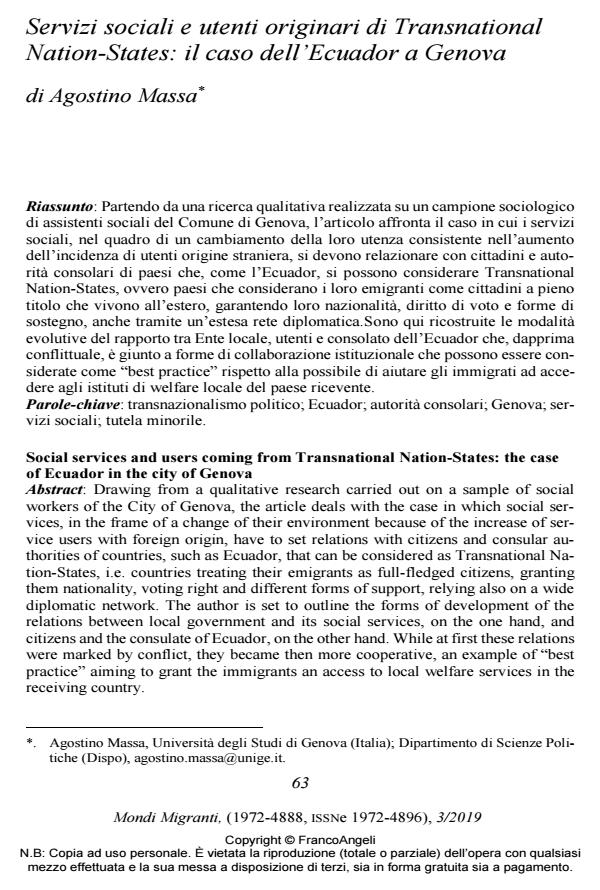Social services and users coming from Transnational Nation-States: the case of Ecuador in the city of Genova
Journal title MONDI MIGRANTI
Author/s Agostino Massa
Publishing Year 2019 Issue 2019/3
Language Italian Pages 22 P. 63-84 File size 215 KB
DOI 10.3280/MM2019-003004
DOI is like a bar code for intellectual property: to have more infomation
click here
Below, you can see the article first page
If you want to buy this article in PDF format, you can do it, following the instructions to buy download credits

FrancoAngeli is member of Publishers International Linking Association, Inc (PILA), a not-for-profit association which run the CrossRef service enabling links to and from online scholarly content.
Drawing from a qualitative research carried out on a sample of social workers of the City of Genova, the article deals with the case in which social services, in the frame of a change of their environment because of the increase of service users with foreign origin, have to set relations with citizens and consular authorities of countries, such as Ecuador, that can be considered as Transnational Nation-States, i.e. countries treating their emigrants as full-fledged citizens, granting them nation-ality, voting right and different forms of support, relying also on a wide diplomatic network. The author is set to outline the forms of development of the relations be-tween local government and its social services, on the one hand, and citizens and the consulate of Ecuador, on the other hand. While at first these relations were marked by conflict, they became then more cooperative, an example of "best practice" aiming to grant the immigrants an access to local welfare services in the receiving country.
Keywords: Political transnationalism; Ecuador; consular authorities; Genova; so-cial services; child protection.
Agostino Massa, Servizi sociali e utenti originari di Transnational Nation-States: il caso dell’Ecuador a Genova in "MONDI MIGRANTI" 3/2019, pp 63-84, DOI: 10.3280/MM2019-003004